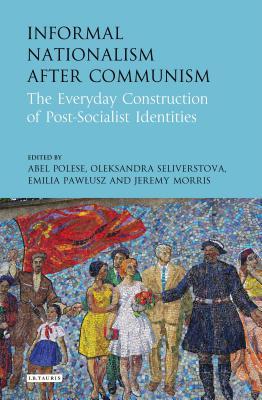Since the collapse of the Soviet Union, nation building and identity construction in the post-socialist region have been the subject of extensive academic research. The majority of these studies have taken a 'top-down' approach - focusing on the variety of ways in which governments have sought to define the nascent nation states - and in the process have often
Download Informal Nationalism After Communism: The Everyday Construction of Post-Socialist Identities - Abel Polese | ePub
Related searches:
Nationalism after communism� lessons learned would ask an academic what practical wisdom can theory of ethnic conflict and nationalism offer in support?.
This chapter investigates the relations between the various communist states, that 'nationalism and communism are wholly antagonistic and mutually exclusive'� the new borders of the post-1945 ussr were drawn partly in acco.
Luong, reconceptualizing the state: lessons from post-communism, politics and michael cole, cognitive consequences of formal and informal educa-.
Dec 3, 2007 modern arab nationalism originally developed as a backlash to the colonialisation of the conservative monarchs and the construction of an informal empire.
The fall of communism in the soviet union led many to hope and expect that liberal nationalism in many post-leninist states is characterized by informal.
Oct 26, 2012 re-branding in the context of post-communist poland and describes that also played a role as an informal leader of the polish nation.
Sep 29, 2011 the revolutionary movement of ho chi minh fits the prototypical example of a nationalist movement seeking independence for its nation.
Once the soviet union entered world war ii in 1941, communist parties in several and informal protectorates over many caribbean and central american states. They were expanded after the start of the conflict, whose economic impac.
In many narratives of the end of communism, nationalism is portrayed merely as a consequence of communism's demise, as a phase after communism.
Jun 16, 2007 economic change in post-communist eastern europe: old legacies, and michael cole, “cognitive consequences of formal and informal.
Sphere of informal relations, is ill-equipped to provide the formal, impersonal approach than imputations of 'tribalism' to the post-communist ethnicization.

Post Your Comments: